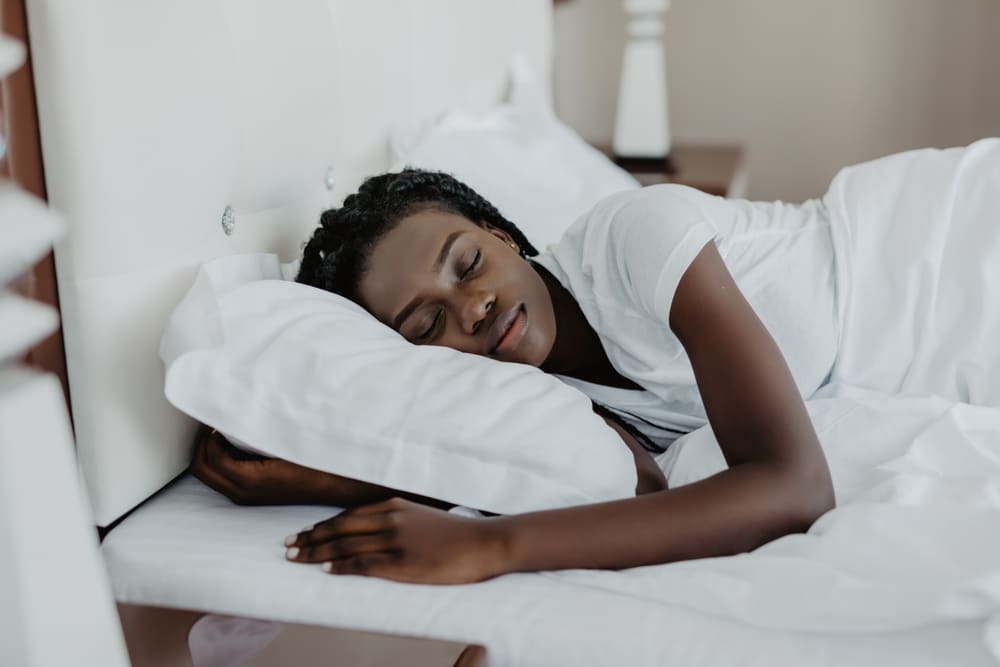A good sleeping posture and, consequently, good sleep is essential for recovery from the day’s activities on both a physical and mental well-being level. It is also beneficial in long-term back health, which may help maintain a good posture. In addition, mastering the art of good sleep and positioning your body correctly whilst you sleep can also help you to wake up feeling more refreshed in the morning, giving you a better quality of rest. So, where do you get started? Here’s everything you need to know about how to maintain good posture whilst you sleep.
How to sleep for best posture
Firstly, you need to start your night with a suitable base: a lumpy, bumpy old mattress won’t aid good sleep! Experts suggest that you should replace your mattress every five to seven years. If you’re choosing a new mattress, pick one with the right level of firmness for you and one that is large enough to accommodate a variety of sleeping positions, allowing you to be versatile with your chosen position.
Whilst the most comfortable sleep position will vary from person to person, if you’re focused on maintaining good posture, a sleep position that keeps your body aligned should be your primary focus. That means your ears, shoulders, and hips should ideally be lined up. Sleeping on your back gives this alignment, and is easy to monitor and achieve, but just 10% of people sleep on their backs. A handy tip here is that if you are unfortunately suffering low back pain episodes, sleeping on your back, with a pillow under the knees, can be a more comfortable position. However, the majority (74%) of people choose to sleep on their sides. If you are a side sleeper, then, as also mentioned above, placing a pillow between your knees as you sleep could assist you in maintaining body alignment. If you change positions when you sleep, then you are advised to be mindful of your movements and keep your alignment: although we know this is easier said than done when you’re already sleeping!
Importance of a regular sleep pattern
Maintaining a regular sleep schedule is also an important factor in our health. Having a sleep schedule that you can work into your life without too much compromise is important. This is because keeping a sleep routine, even at the weekends, can help your internal body clock maintain its timings and will ensure that you not only fall asleep but wake up more naturally. Those with a regular sleep pattern are also said to have a healthier body composition (especially for elderly individuals) and may be less likely to suffer from such diagnoses as heart disease.
You can maintain your sleeping pattern by going to bed and waking up at the same time every day. But, again, consistency is key here, so stick to this routine at the weekend, too, to reinforce the sleep-wake cycle for your body.
What causes a stiff back in the morning?
It is natural to wake sometimes with a bit of mild low back pain and stiffness in the morning but this should naturally clear within five minutes. However, if you wake with intense back pain or a stiff back most mornings, then your sleeping position could be to blame: not only can bad sleep posture affect your overall posture, but it can also impact your back strength and health. Poor sleeping positions tend to lead to flattening of the natural curve of your spine and put the small capsular joints of the spine under pressure. As musculoskeletal experts, chiropractors and osteopaths can suggest improvements in your sleep posture that can help reduce stress on injured structures, aiding sleep and aiding recovery at the same time.
Chiropractors and osteopaths specialise in restoring musculoskeletal function to joints and restoring function to injured muscles. If you are unsure if osteopathy or chiropractic is the correct treatment for your recovery, we are delighted to offer a Free 30-Minute Consultation to discuss your back pain: During this consultation, we will take the time to explain what we do, how we could help you, and so much more.












